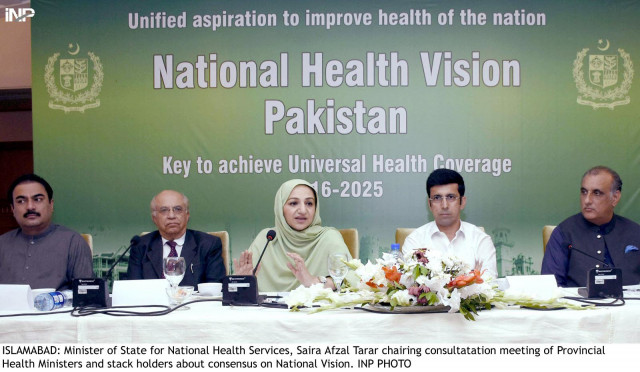Health sector reforms compromised
Pakistan lacks in providing access to quality healthcare and education to a huge chunk of its population

In this file photo, Health Minister Saira Afzal Tarara addresses a press conference. PHOTO: INP

That is not the case here as showcased by the government’s skewed priorities. The World Bank termed work on the healthcare reforms project “moderately satisfactory” and attributed frequent administrative changes and slow progress as the reason behind its intended move to cut the loan by $20 million. The amount may just be a little over 15 per cent of the overall portfolio of the project, but when a country — that has already fared poorly in health sector reforms — faces a cut in finances, the most neglected areas suffer the most. Ironically, these are the areas that are most in need of reforms. But development that is politically-driven has ensured that its effects do not reach all areas. The 18 districts that are set to be affected by the loan reduction are already in severe need of quality health services. One can’t help but wonder the point of such programmes when, despite having the finances, the country has been unable to satisfy its citizenry. The argument that the government won’t know what to do with the money even if it had it holds all too well here. Ironically, this is the argument tax evaders use to justify their unwillingness to pay their due share of taxes. Pakistan has long suffered due to incompetent and corrupt officials. While debt keeps piling on, meaningful progress on most fronts remains missing. One can only hope that healthcare and education are prioritised, but it seems like the government is only focusing on energy projects and that too, for a few select areas.
Published in The Express Tribune, September 13th, 2016.
Like Opinion & Editorial on Facebook, follow @ETOpEd on Twitter to receive all updates on all our daily pieces.















COMMENTS
Comments are moderated and generally will be posted if they are on-topic and not abusive.
For more information, please see our Comments FAQ